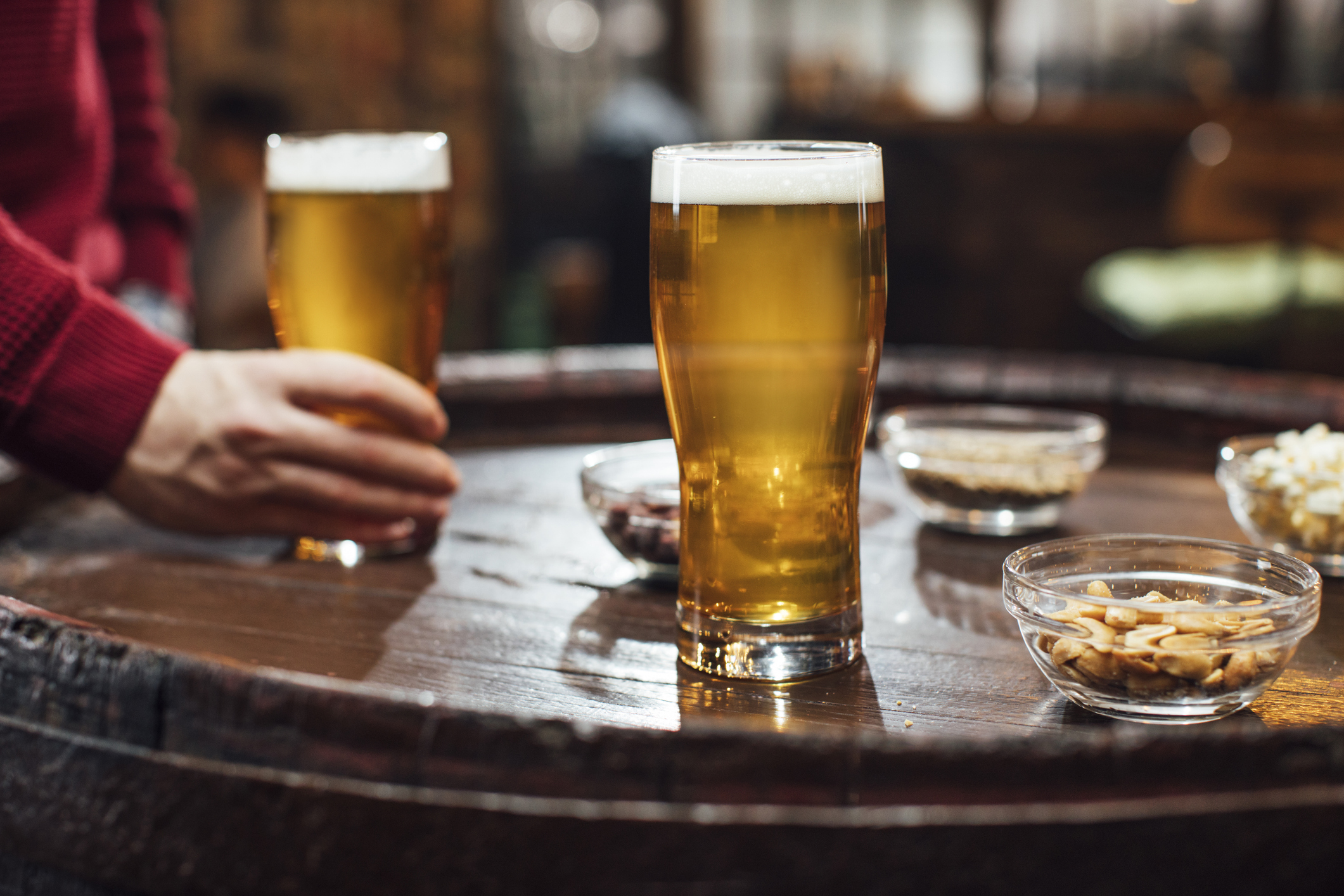Watching a close friend battle their inner demons can make you feel helpless and worried for their safety, especially where alcohol is concerned. Perhaps you’ve witnessed your friend drink at strange times or black out regularly. Or maybe you used to hang out with your friend often, but lately you’ve noticed that they skip spending time with you to drink at home or go to alcohol-filled parties. As aggravating as your friend’s actions may be for you, your friend is likely having an even more difficult time if they are silently struggling with addiction. Fortunately, you have the power to decide whether you will enable your friend’s alcoholism or advocate for their recovery.
Red Flags of a Friend’s Alcoholism
Before striking up a discussion with your friend about their relationship with alcohol, it’s imperative that you are able to identify some of the telltale signs of alcohol dependence. This will allow you to voice your concerns to your friend using substantial examples that will be harder for them to ignore. Here are the most common red flags that your friend may struggle with alcoholism:
They aren’t able to control their drinking
An undeniable sign of addiction is that alcohol has become the center of a person’s world. If you notice your friend cannot leave their drink unfinished, or they seem unable to reduce their alcohol consumption, they most likely have become dependent on alcohol.
Their drinking has escalated
Perhaps your friend started out having one drink a day, but now they need several glasses of wine to function. They might drink during uncommon times of the day, such as the morning, or drink in inappropriate settings, like work or school. If your friend participates in binge drinking several times a month — defined by the CDC as having four drinks for women or five drinks for men over the course of two hours—your friend likely has an alcohol use disorder (AUD). These changes in their alcohol consumption patterns are all indicators of a larger problem.
Their academic or professional performance has suffered
Alcoholism is a disease of the brain that can lead to an inability to focus or a loss of interest in activities a person previously enjoyed. Your friend may have an alcohol problem if their drinking has affected their ability to fulfill their daily responsibilities by impacting their sense of motivation and productivity.
Their personality or behavior has changed
Because of alcohol’s harmful effect on the brain, your friend may act differently now. Their routine drinking may cause them to be more irritable, tired, secretive, restless, forgetful, or even aggressive.
They deny that they have a problem
Often, close friends and family are able to recognize the signs of alcoholism before the addicted person does. If someone else has already raised concerns about your friend’s behavior, your friend’s alcohol consumption likely extends beyond “social” drinking. If your friend became defensive when their loved one pointed out their drinking habits, they probably feel guilty about their drinking, and are trying to convince themselves and others that their behavior is normal.
How to Address a Friend’s Addiction
If your friend exhibits one or more of the signs listed above, there is a significant chance that they suffer from an alcohol use disorder. They may feel lonely, anger, and disappointed in themselves already, or they may not fully comprehend how their addiction has impacted them and those around them. These steps will help you guide your friend through this challenging time.
1. Forgive your friend
If you knew your friend before they started drinking heavily, you may have noticed changes in their behavior after they started abusing alcohol. While this can be frustrating, try to be patient with your friend and understand that alcoholism causes them to prioritize drinking over everything else. Deep down, your friend may recognize that their drinking has become problematic and may want to stop on their own. At the same time, your friend now thinks drinking is necessary to function because alcoholism hijacks the brain and makes people dependent on alcohol. Before you have a conversation with your friend, put aside your anger towards them and try to understand how their addiction has impacted their actions.
2. Talk to them while they are sober
In order to help your friend, you will need to have a potentially uncomfortable or difficult discussion with them about the changes you’ve witnessed lately. The timing of this conversation can have a tremendous influence on their willingness to listen to you. Approaching your friend when they are sober will ensure that they will be in a better frame of mind while you’re speaking with them, making them more receptive to your concerns.
3. State your intentions clearly
It’s important to keep this conversation short and simple, as you do not want to overwhelm or alarm your friend and make them less willing to address the issue. Being both honest and compassionate with your friend is crucial. Help them understand how their alcoholism has affected those around them by focusing strictly on what you have observed, rather than what they have done. An aggressive intervention is unlikely to help the situation. Confronting them or pointing fingers won’t prompt them to better themselves and may only make them more likely to push you away.
4. Take action
After you have spoken with your friend, they may need some time to process the interaction. Because giving up alcohol is a major lifestyle change, they may or may not be willing to take steps to improve their circumstances. In either case, you can start researching options for treatment and offer gentle suggestions. Addiction rehab facilities that are accredited often provide more comprehensive, high-quality treatment. Look for treatment centers that offer a full continuum of care, from detox, to residential or outpatient services, to an extended care program that can guide your friend through the first few months of sobriety. If they still aren’t willing to enroll in treatment after you’ve shown them what you found, offer to accompany them to a support group. These meetings are not a substitute for clinical treatment, but they could be eye-opening for your friend, who may warm up to the idea of professional support after hearing about others’ experiences in treatment.
5. Remember your own recovery
It can be instinctual to want to help a loved one who is going through a tough time, but you should never sacrifice your own well-being for someone else’s. Addiction is a disease that impacts not only the addicted person but also those closest to them. Before you help your friend, you need to pay attention to your own needs by practicing self-care and spending time with other friends who can support you, in turn. By having a life and a social circle of your own, you can safeguard your mental health while giving your friend the space to help themselves. If your friend does not show any willingness to change, you may need to reevaluate the friendship and consider whether it’s worth salvaging.
You can play a critical role in your friend’s recovery by encouraging them to take the first steps to manage their alcoholism. However, as much as you may want to be part of your friend’s healing journey, change will need to start with them. Despite your best efforts, your support alone may not be enough to push them to overcome addiction, so don’t fixate on their alcoholism or let it become the only topic you talk about with them. You can be the great friend you have always been while putting yourself first. If your friend truly values the bond between you, they will be open to your perspective and make an effort to change for the better.
If you or a loved one is struggling with addiction, Mountainside can help.
Click here or call (888) 833-4676 to speak with one of our addiction treatment experts.

 By
By 







